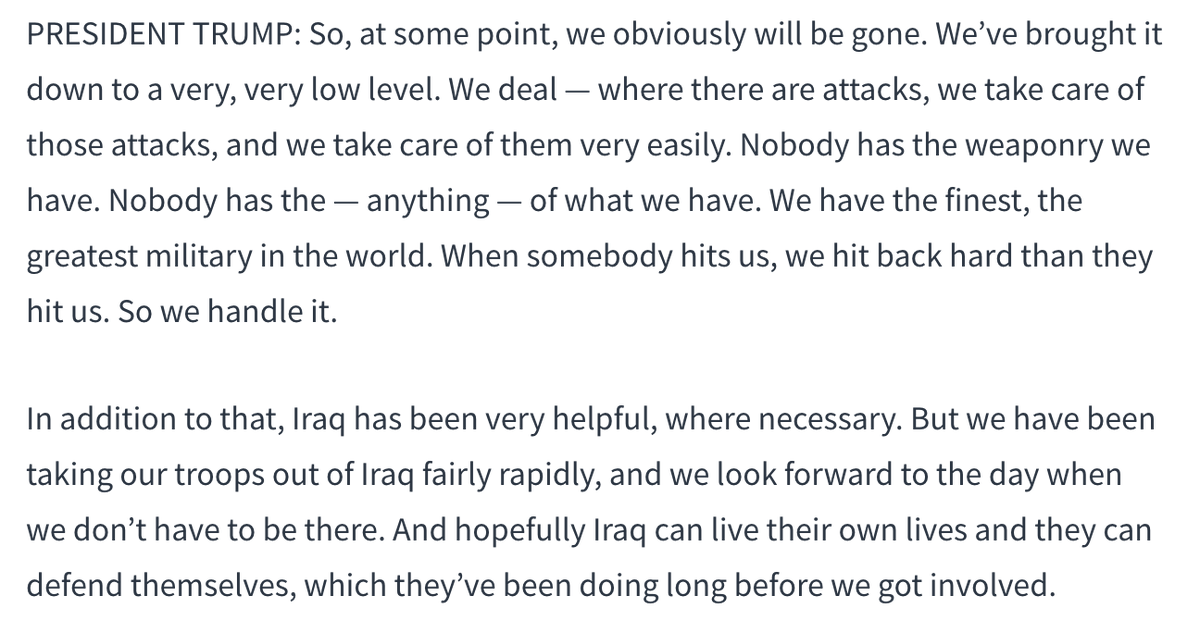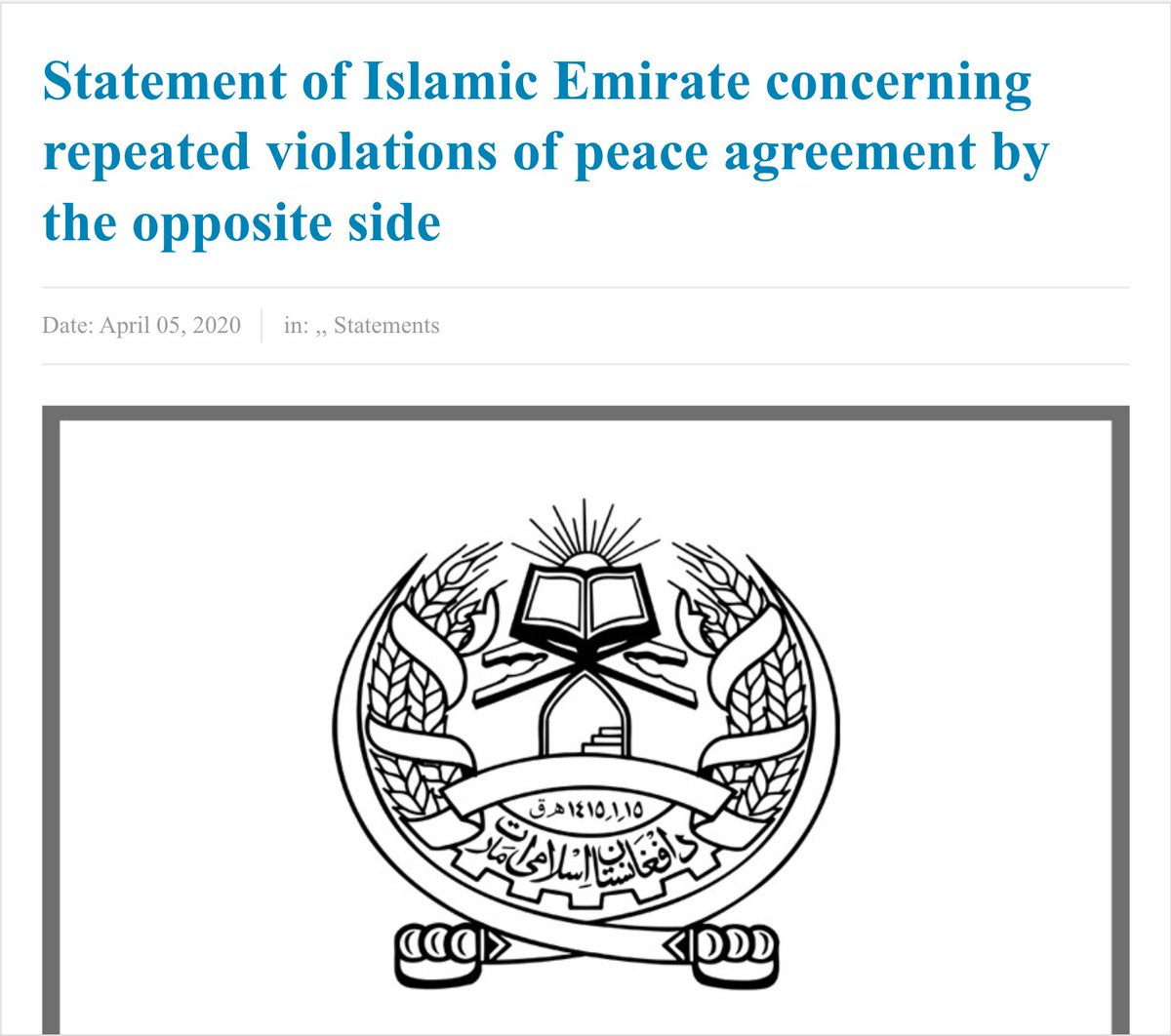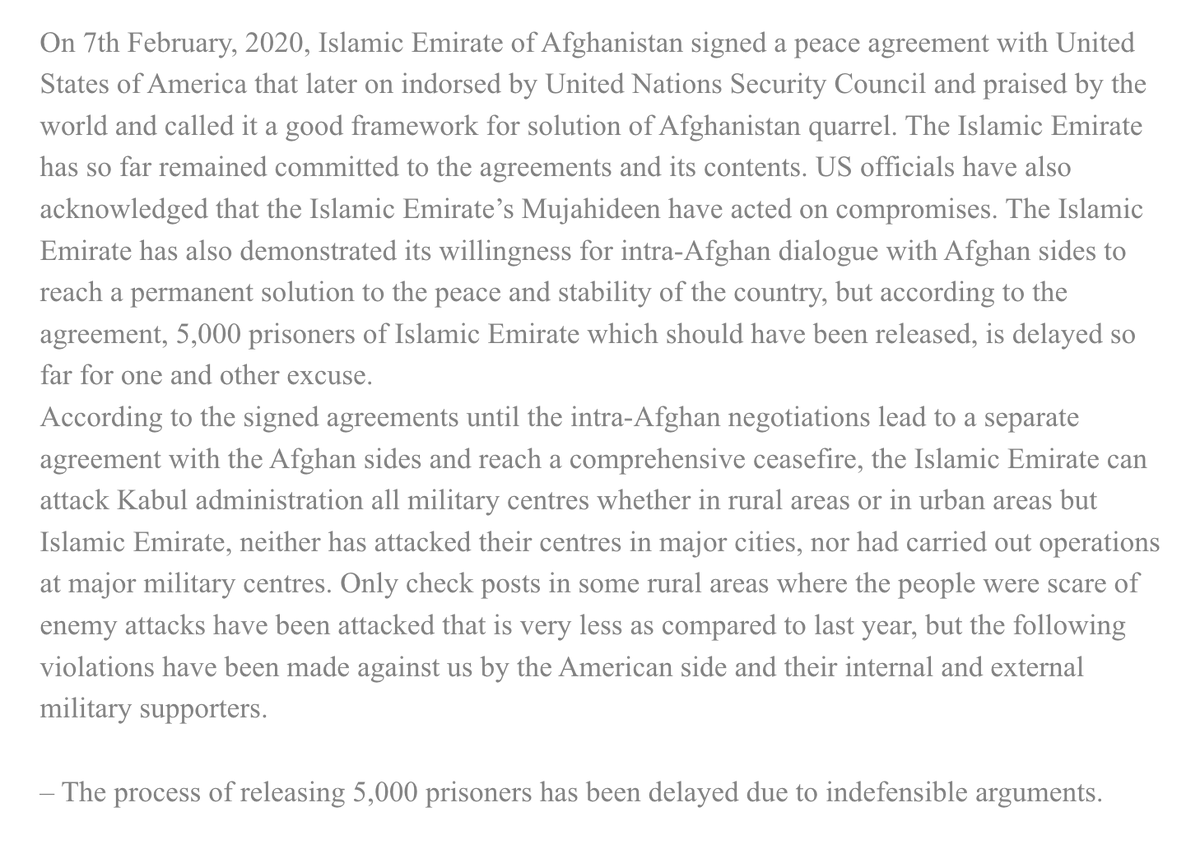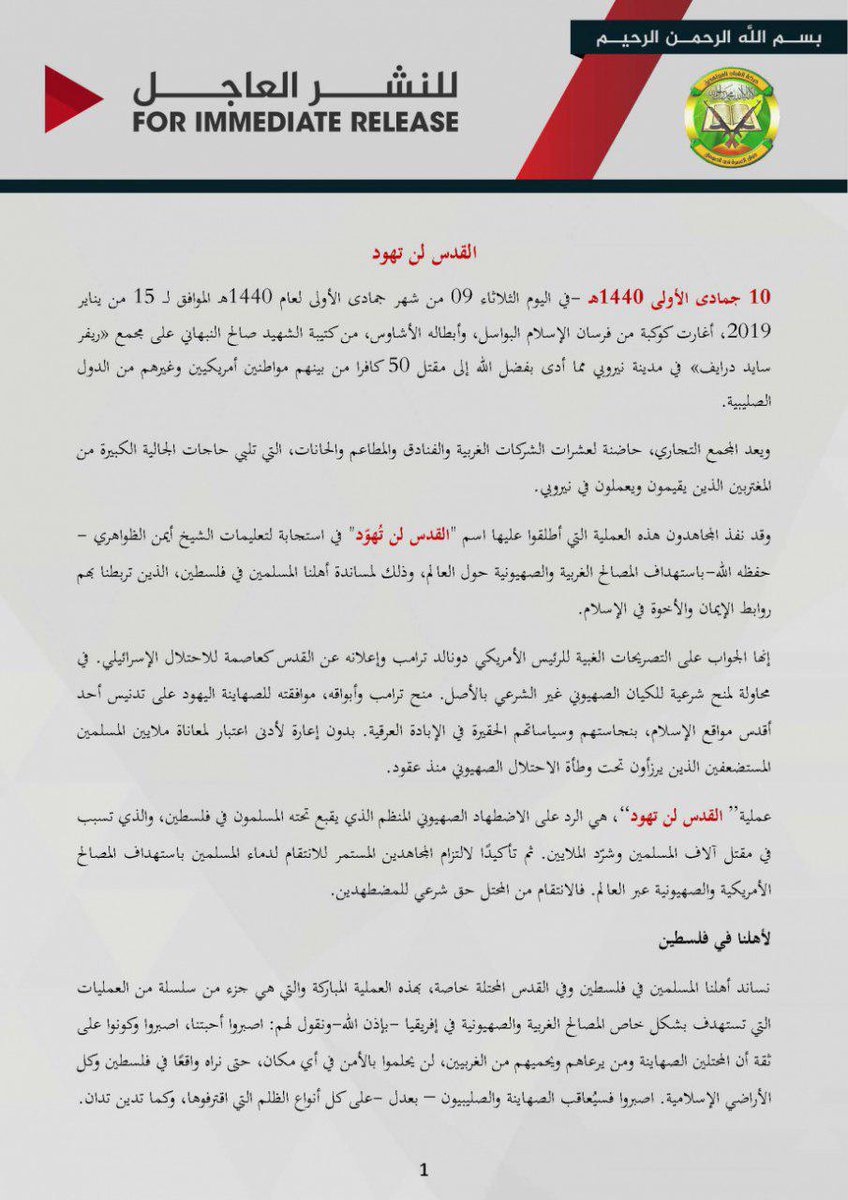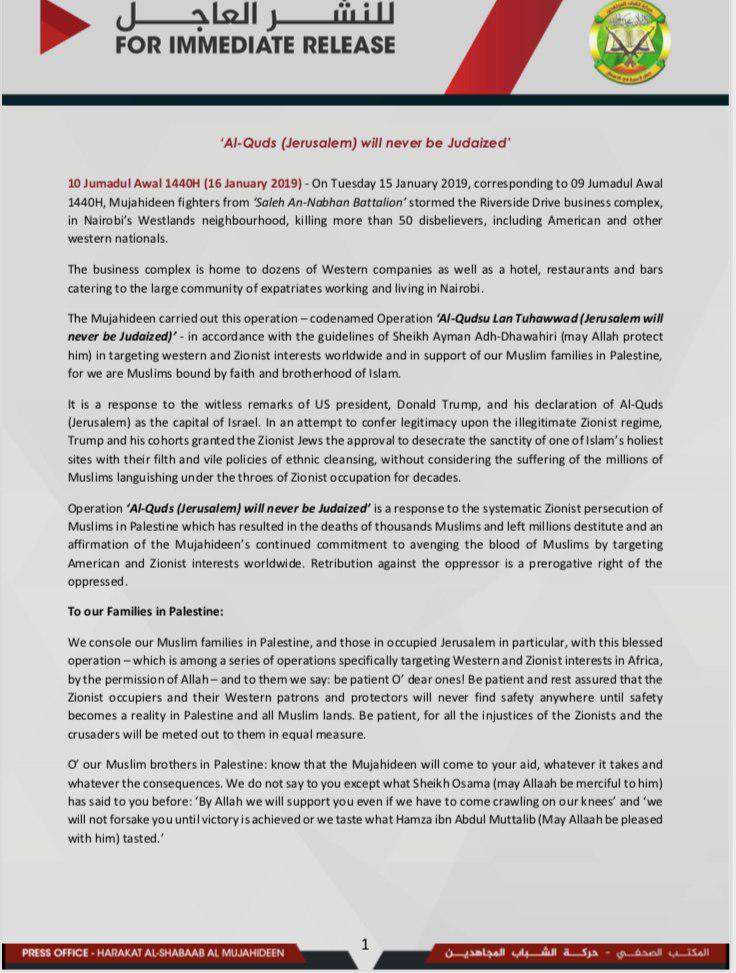
1. @EricSchmittNYT, @adamgoldmanNYT, @farnazfassihi and @ronenbergman report that intelligence officials confirm Abu Muhammad al-Masri, a senior al Qaeda leader in the line of succession, was killed by Israeli operatives on Aug. 7 in Iran. Some notes...
nytimes.com/2020/11/13/wor…
nytimes.com/2020/11/13/wor…
2. Abu Muhammmad's death was first reported on al-Qaeda-linked social media sites. One of the first write-ups of this report came from @MEMRIReports, @memrijttm. See their report here:
memri.org/jttm/pro-al-qa…
memri.org/jttm/pro-al-qa…
3. Abu Muhammad was killed on Aug. 7 - the anniversary of the Aug. 7, 1998 U.S. Embassy bombings in Kenya & Tanzania. That's significant for a few reasons. First, Abu Muhammad was long wanted by the U.S. for his role in those bombings - AQ's deadliest attacks prior to 9/11.
4. Second, according to the 9/11 Commission Report, U.S. district court testimony & other evidence, Iran and Hezbollah gave al Qaeda the "tactical expertise" needed for the 1998 embassy bombings. See 9/11 Commission Report (pp. 61 and 68): 

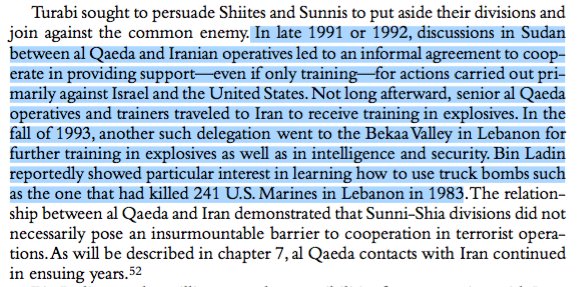
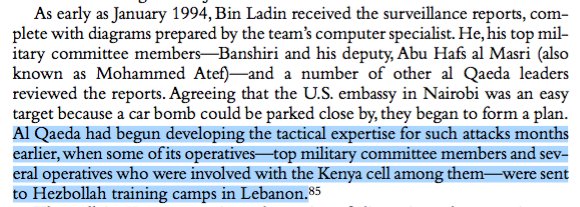
5. So, a senior AQ leader was killed in Iran 22 years after AQ operatives used expertise from Iran & Hezbollah to attack US embassies. For more, see the bottom of my piece here ("Al Qaeda modeled 1998 US Embassy bombings on Hezbollah’s 1983 attacks"):
longwarjournal.org/archives/2017/…
longwarjournal.org/archives/2017/…
6. The status of senior AQ leaders inside Iran has often been murky. Abu Muhammad and others were under some form of detention, but released as part of an exchange between Iran and AQ in 2015:
longwarjournal.org/archives/2015/…
longwarjournal.org/archives/2015/…
7. Some of the AQ figures released made their way to Syria, where they were killed in the U.S. drone campaign. But Abu Muhammad al-Masri and Saif al-Adel ultimately stayed in Iran, where they thought they were safe.
8. In Aug. 2018, the U.S. State Department increased the rewards offered for information on Abu Muhammad al-Masri and Saif al-Adel. State didn't say at the time that they were in Iran, but intelligence officials and the UN knew it:
longwarjournal.org/archives/2018/…
longwarjournal.org/archives/2018/…
9. Abu al Qassam al-Urduni, an al Qaeda operative in Syria who was subsequently killed, but worked with Abu Muhammad and Saif al-Adel, also confirmed that the two were in Iran after they were all released in 2015:
longwarjournal.org/archives/2020/…
longwarjournal.org/archives/2020/…
10. Saif al-Adel and Abu Muhammad became involved in the controversy over the jihadists' efforts in Syria. It was in that context that their continued presence in Iran became widely known. For more, see:
longwarjournal.org/archives/2018/…
longwarjournal.org/archives/2018/…
11. Given the renewed attention paid to Abu Muhammad al-Masri & Saif al-Adel by the State Department in 2018 (see above), it makes sense that the U.S. had continued to track their movements inside Iran. It also makes sense that the U.S. would work with the Israelis to get them.
12. There is no indication that Saif al-Adel, who is right up there with Abu Muhammad al-Masri in terms of seniority within AQ, has perished thus far. Al-Adel is also wanted for his role in the 1998 U.S. embassy bombings and is presumably still inside Iran.
13. Abu Muhammad's daughter, Miriam, was also killed in the operation inside Iran. She was the widow of Hamza bin Laden, who lived/was detained inside Iran for years. Hamza's wedding video was found in his father's Abbottabad compound:
longwarjournal.org/archives/2017/…
longwarjournal.org/archives/2017/…
14. Hamza was ultimately killed as well. His marriage to Miriam took place inside Iran. We got the U.S. government to release that video and other files recovered in Osama bin Laden's compound in 2017.
15. Iran and al Qaeda have been at odds in a number of ways. You can find evidence of that in the OBL files, for sure. We've reported on it. For example, OBL worried about Iran's growing influence. Some want their points of conflicts to be the whole story. But there's more to it.
16. Beginning in July 2011, the Obama administration's Treasury and State Departments began exposing the Iranian regime's "secret deal" with al Qaeda. This deal allows for AQ to maintain its "core facilitation pipeline" inside Iran. See timeline here:
longwarjournal.org/archives/2018/…
longwarjournal.org/archives/2018/…
17. In 2011, the U.S. Treasury and State Departments identified the leader of AQ's network inside Iran as an operative known as Yasin al-Suri. I found al-Suri's personnel file while looking through Osama bin Laden's papers. The file noted that Yasin al-Suri was based in Iran.
18. We've suspected that the U.S. increased its efforts to take out senior al-Qaeda leaders across multiple countries this year. Abu Muhammad al-Masri is one in a string of operatives to perish in recent months, but he was the most senior.
19. On 9/17, Christopher Miller (then NCTC director, now acting SecDef) told Congress that "several" of al-Qaeda's "remaining senior leaders continue to find safe haven in Iran, and will likely play a key role in the group’s efforts to reconstitute its leadership."
20. So, U.S. officials have made it known that they are keeping tabs on senior al Qaeda leaders inside Iran.
• • •
Missing some Tweet in this thread? You can try to
force a refresh

